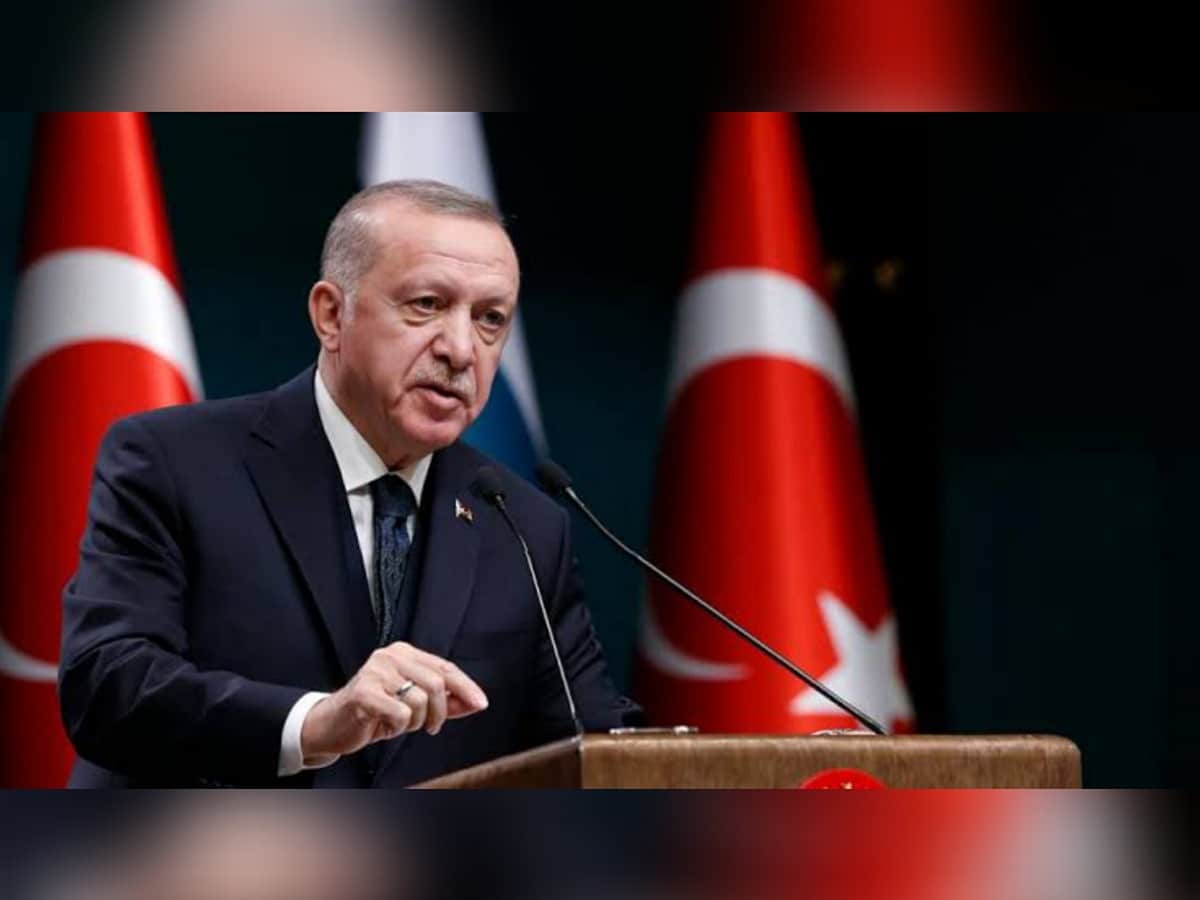
Ankara: Turkish President Recep Tayyip Erdogan, having won the recent elections in Turkey, after weathering the biggest challenge in his long career, is trying once again to play the role of peacemaker in the war in Ukraine, renew the deal allowing the export of grain and fertilisers from Ukraine and Russia, and show the West that he is the kingmaker, as he holds the key regarding Sweden’s application to join NATO.
Since the Russian invasion of Ukraine about 500 days ago, Erdogan sought to play a mediating role in the war between Russia and Ukraine. Together with all NATO member states, Erdogan condemned the Russian invasion and rejected attempts at annexing Ukrainian territory, while he supplied drones and other military equipment to Ukraine, helping it in its war effort.
However, the Turkish President adamantly refused to apply Western sanctions on Moscow. At the same time, he uses his special relationship with President Vladimir Putin and offers to act as mediator between the warring sides.
On July 7, in a statement that will surely displease Putin, President Erdogan, speaking after a meeting with Ukrainian President Volodymyr Zelensky in Istanbul, expressed clear support for Kyiv’s NATO aspirations and said:
“Ukraine deserves membership in NATO. And in your presence, I want to emphasise once again that no one will lose from the coming of a just peace. We will provide any support so that Ukraine gets back on its feet. Since the annexation of Crimea, to this day, we declare on all platforms our support for the territorial integrity, sovereignty and independence of Ukraine. And we demonstrated our solidarity with Ukraine in practice by providing concrete assistance in the political, economic, humanitarian and technical spheres. We have also become the country that is making the most efforts to end the war.”
Ukraine’s declared aim of becoming a member of NATO, is expected to be one of the subjects that will be discussed next Tuesday and Wednesday at a summit of the Alliance in the Lithuanian capital of Vilnius, but it is unlikely that Ukrainian’s wish will be granted before the end of the war. The NATO the allies are not eager to become involved directly in the war.
Erdogan also said he would discuss with Russian President Vladimir Putin, who is expected to visit Turkey next month, possible prisoner swaps between Russia and Ukraine.
It should be noted that in the past, Erdogan helped arrange prisoner exchanges.
Zelenskyy said the return of prisoners, including children deported to Russia, was the first thing on the two Presidents’ agenda. Continuing, he said: “We are working on the return of our captives, political prisoners and Crimean Tatars (members of Ukraine’s Muslim community). Our partners have all the lists. We are really working on this.”
Undoubtedly, one of President Erdogan’s biggest diplomatic successes is last year’s Black Sea Grain Initiative, allowing the safe export of grain from Ukrainian ports via the Black Sea despite the war. Thanks to the arrangement brokered by Erdogan and the United Nations, about 33 million tons of Ukrainian grain as well as Russian fertilisers were exported mainly to developing nations as well as food aid for the World Food Programme.
The deal expires on July 17 and Russia, which is reportedly angry about some aspects of the implementation of the deal, has threatened not to allow its further extension.
Last week, UN Secretary-General Antonio Guterres made a statement stressing the indispensable role food and fertiliser exports from the Russian Federation and Ukraine continue to play in support of global food security.
“Together, these agreements are contributing to sustained reductions in global food prices, which are now more than 23 per cent below the record highs reached in March last year,” Guterres statement said.
Erdogan, speaking at a joint news conference with Zelenskyy, said he was pressing Russia to extend the Black Sea Grain Deal by at least three months and for longer periods beyond that. Projecting his role as a possible mediator between Ukraine and Russia, he declared that Turkey has the “most sincere desire to see Kyiv and Moscow return to the negotiating table.”
In sharp contrast to his recently declared support for Ukraine’s bid to join NATO, Erdogan has stubbornly refused to give the green light to Sweden’s accession to the North Atlantic Treaty Organisation. The application must be unanimously approved by all current NATO members, but Turkey and Hungary have failed to ratify the bid.
On Friday, Erdogan confirmed that his country would not ratify Sweden’s accession to NATO unless the Nordic country takes a firm stance against “terrorist groups.” He claims that Sweden provides a safe haven for Kurdish terrorists.
“How can a state that does not distance itself from terrorist organisations contribute to NATO?” Erdogan asked at the graduation ceremony at the National Defense University in Istanbul, indicating that Stockholm will not receive the green light from Ankara in tomorrow’s NATO summit in Vilnius.
Ankara refuses to ratify Sweden’s NATO bid unless the Nordic country distances itself from the Kurdistan Workers’ Party (PKK), which is regarded as a terrorist group by Turkey, the US and the EU, and extradites about 120 Kurds it accuses of acts of terrorism.
Trying to appease Turkey, Sweden has recently passed a constitutional amendment which allows it to create tougher anti-terror laws demanded by Turkey and has convicted a PKK member to four-and-a-half years in prison for terrorism financing. However, the recent Quran burnings in Sweden have angered Muslims around the world and Erdogan declared:
“We will eventually teach the arrogant that Westerners that insulting Muslims is not freedom of thought.”
By keeping Sweden’s NATO bid hostage to his wishes, Erdogan wants to show the West that he is the kingmaker who dictates the affairs of the organisation. At the same time, he projects himself as a peacemaker.
(Except for the headline, the story has not been edited by Siasat staff and is published from a syndicated feed.)



